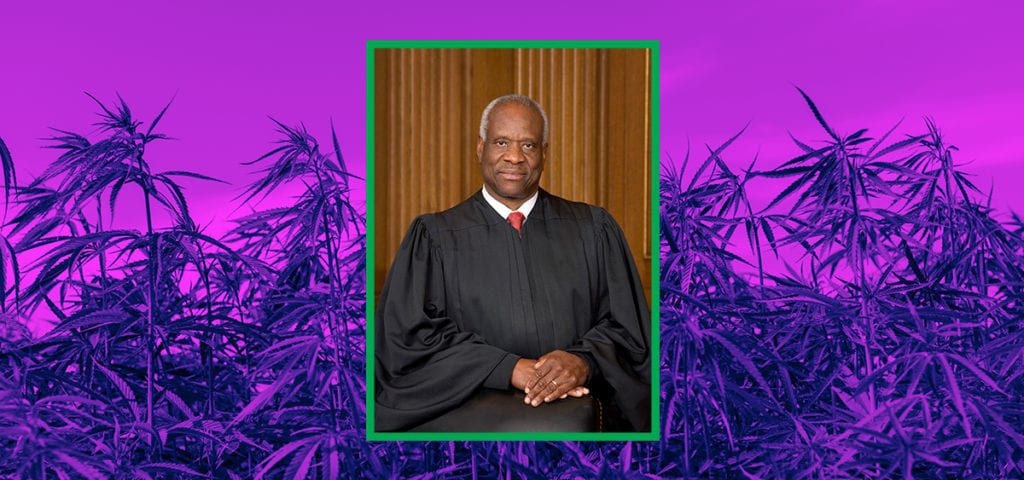Supreme Court Justice Clarence Thomas said on Monday that the federal “prohibition on interstate use or cultivation of marijuana may no longer be necessary or proper.”
Justice Thomas Says Federal Cannabis Prohibition ‘May No Longer Be Necessary’

Full story continued below.
Advertisement
Supreme Court Justice Clarence Thomas, one of the high court’s most conservative judges, on Monday said that the federal “prohibition on interstate use or cultivation of marijuana may no longer be necessary or proper to support the federal government’s piecemeal approach.”
Thomas’ opinion was filed in Standing Akimbo, LLC et al v. the United States.
“Federal policies of the past 16 years have greatly undermined its reasoning. The federal government’s current approach is a half-in, half-out regime that simultaneously tolerates and forbids local use of marijuana.”—Thomas in the opinion
The justice points out that in 2009 and 2013 the Department of Justice issued memorandums outlining policies that prohibit the federal government from interfering with state-legal cannabis programs and businesses.
In the five-page opinion, Thomas points out, rightly, that “legality under state law and the absence of federal criminal enforcement do not ensure equal treatment” for cannabis businesses, noting that legal cannabis operators, under section Internal Revenue Service code 280E, can end up “still in the red after it pays its workers and keeps the lights on” because the company cannot take normal business deductions.
“This disjuncture between the Government’s recent laissez-faire policies on marijuana and the actual operation of specific laws is not limited to the tax context,” Thomas wrote. “Many marijuana-related businesses operate entirely in cash because federal law prohibits certain financial institutions from knowingly accepting deposits from or providing other bank services to businesses that violate federal law.”
The opinion also points out that were cannabis businesses hire armed guards to protect the cash “the owners and the guards might run afoul of a federal law that imposes harsh penalties for using a firearm in furtherance of a ‘drug trafficking crime.’
“If the Government is now content to allow States to act ‘as laboratories’ “‘and try novel social and economic experiments,’” Thomas wrote in the opinion, “then it might no longer have authority to intrude on ‘[t]he States’ core police powers . . . to define criminal law and to protect the health, safety, and welfare of their citizens.’”
The opinion comes as the court last week declined to hear a separate case challenging IRS summons in 280E audits.
Get daily news insights in your inbox. Subscribe
End
